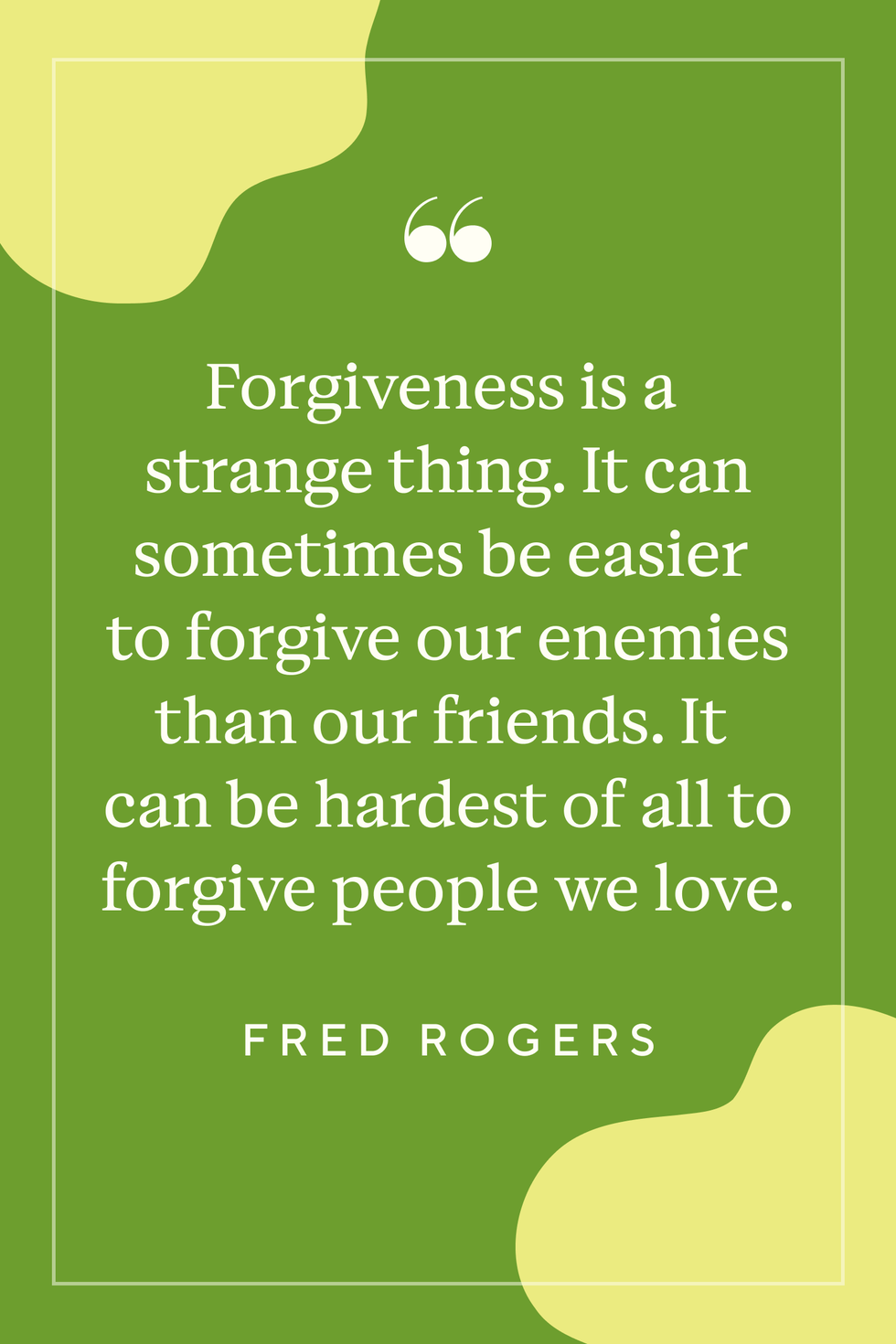Understanding the Value of Mercy in Recovery Relationships
Mercy is usually seen as a basic act of releasing, yet its significance in healing partnerships prolongs much beyond mere absolution. It acts as a critical mechanism for psychological release, allowing people to navigate the intricacies of discomfort and animosity. Comprehending the nuanced differences between mercy and reconciliation can brighten the path towards much healthier communications. As we check out the multifaceted advantages of forgiveness, one should consider just how these concepts can transform not just personal relationships yet also the wider social fabric. What stays to be uncovered is the profound impact mercy can have on specific growth and common harmony - The importance of forgiveness.
The Meaning of Mercy
Although forgiveness is commonly regarded as a basic act of releasing, its meaning includes a complicated interplay of emotional and mental processes. At its core, mercy is the aware decision to release sensations of bitterness or vengeance toward an individual or team that has triggered harm. This procedure is not simply regarding discharging the offender; rather, it includes an extensive emotional change that can result in personal development and healing.
Forgiveness is diverse, often identified by a person's inner struggle to resolve their pain with the need for tranquility. It calls for identifying the misdoings dedicated, refining the connected emotions, and ultimately making a choice to relocate onward without the worry of displeasure. This option frequently requires a cognitive change, where one reframes their understanding of the disobedience and the wrongdoer, permitting for empathy and understanding to emerge.
Significantly, forgiveness does not indicate condoning the actions or failing to remember the offense; it is a calculated act that prioritizes emotional health. By specifying forgiveness in this fashion, we can value its role in helping with healthier connections and cultivating psychological strength, establishing the stage for much deeper exploration into its advantages.
Emotional Benefits of Mercy
Forgiveness uses substantial emotional benefits that can greatly influence a person's mental wellness and general wellness. When a person chooses to forgive, they actively release sensations of resentment, resentment, and rage, which can otherwise develop a heavy psychological burden. This launch usually leads to a decrease in tension and anxiety, advertising a feeling of tranquility and psychological security.
Furthermore, forgiveness cultivates a boosted capability for compassion and empathy. By comprehending the perspective of the offender, individuals can cultivate a much deeper emotional strength, which boosts their ability to manage future obstacles. This process not only boosts psychological guideline but likewise adds to a more favorable outlook on life.
In addition, forgiving others can strengthen one's self-worth and self-respect. It enables people to redeem their personal power, damaging totally free from the unfavorable cycles of victimhood - The importance of forgiveness. This newly found empowerment can cause much healthier psychological responses and stronger interpersonal relationships
Mercy vs. Settlement
The distinction in between forgiveness and reconciliation is essential in understanding the dynamics of recovery connections. Forgiveness is an inner process in which a private picks to let go of animosity and unfavorable feelings towards somebody who has actually caused injury. It is primarily a personal trip, concentrated on psychological release and self-healing, allowing one to move on without bring the concern of previous grievances.
In comparison, settlement involves restoring and bring back the relationship to a state of count on and common respect. This process often needs open communication, active involvement from both events, and a dedication to resolving the underlying problems that resulted in the dispute. While mercy can take place independently, reconciliation necessitates the determination of both individuals to take part in dialogue and pursue a shared understanding.
It is important to keep in mind that forgiveness does not always bring about reconciliation. An individual may forgive one more without opting to recover the relationship, particularly if depend on has actually been irrevocably harmed or if the relationship is deemed harmful. Understanding this distinction permits individuals to navigate their feelings successfully and make educated decisions regarding their relationships.
Steps to Grow Mercy
Cultivating mercy is a purposeful process that includes a number of crucial actions focused on helping with psychological healing. The primary step is recognizing the discomfort click here to find out more triggered by the crime. Identifying one's sensations is vital, as it permits individuals to process their feelings really.
Next, assessing the incident and comprehending its impact can provide clarity. This reflection should include checking out the motivations behind the offender's actions and recognizing that everybody is fallible.
The 3rd step involves making an aware decision to forgive. This decision is essential, as it indicates a readiness to allow go of resentment and progress.
Ultimately, sharing feelings in a constructive way can be advantageous - The importance of forgiveness. Whether through journaling, talking with a trusted friend, or looking for treatment, articulation of feelings can assist in the forgiveness trip
Real-Life Instances of Mercy

In another example, a close-knit group of buddies encountered a substantial break after one member inadvertently shared a private trick. Instead of harboring resentment, the affected buddy chose to forgive, understanding the significance of valuing the relationship over the mistake. This choice urged open dialogue and ultimately strengthened their link.

Conclusion
Finally, forgiveness plays a critical role in the healing of connections by helping with go now the release of click here to read negative feelings and promoting empathy. By differentiating in between mercy and settlement, people can involve in a useful procedure that boosts psychological wellness. Executing actions to cultivate forgiveness can bring about transformative results, enhancing connections and advertising a supportive setting. Eventually, the technique of mercy serves as a driver for personal development and the nurturing of much healthier social dynamics.
